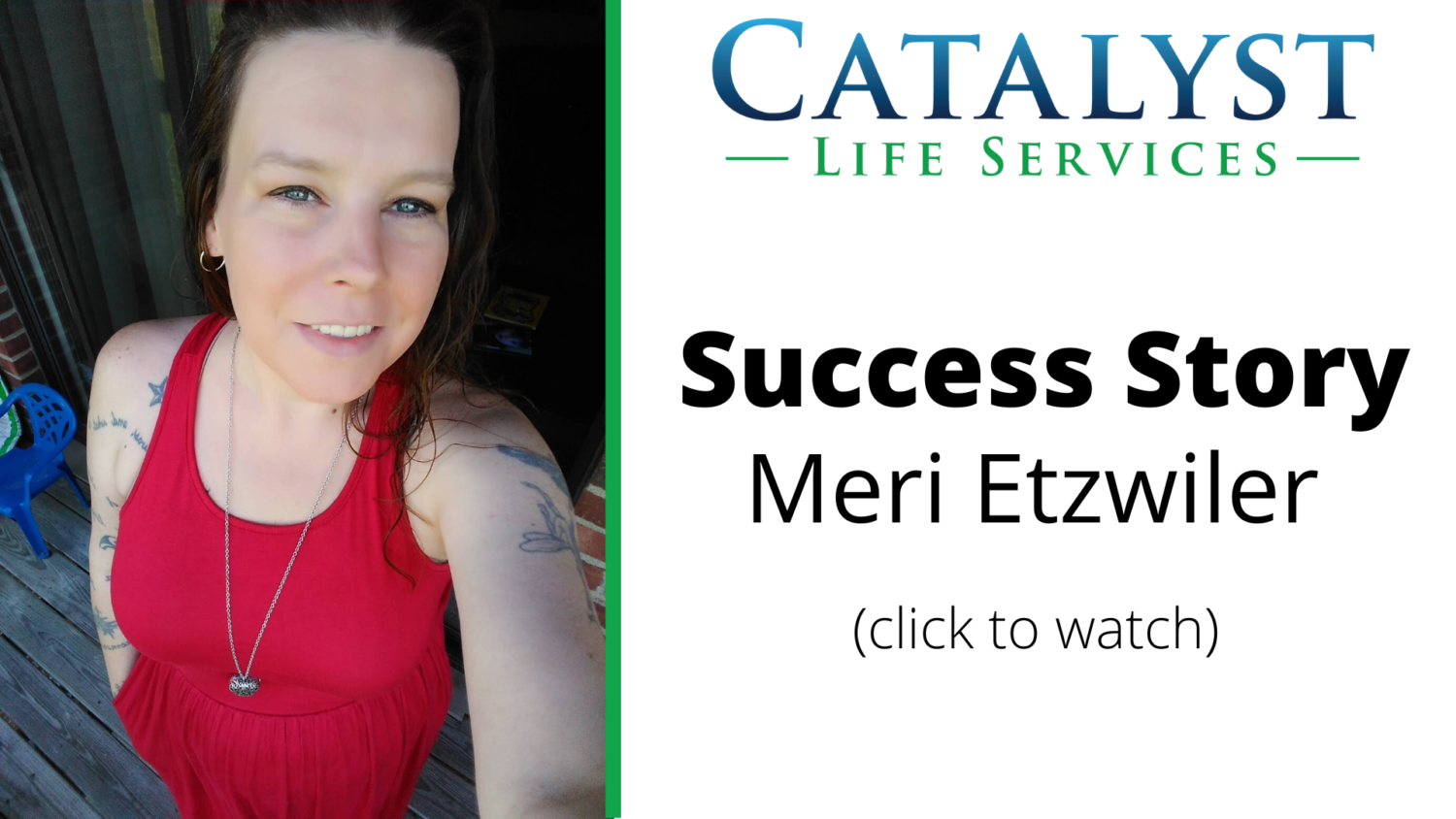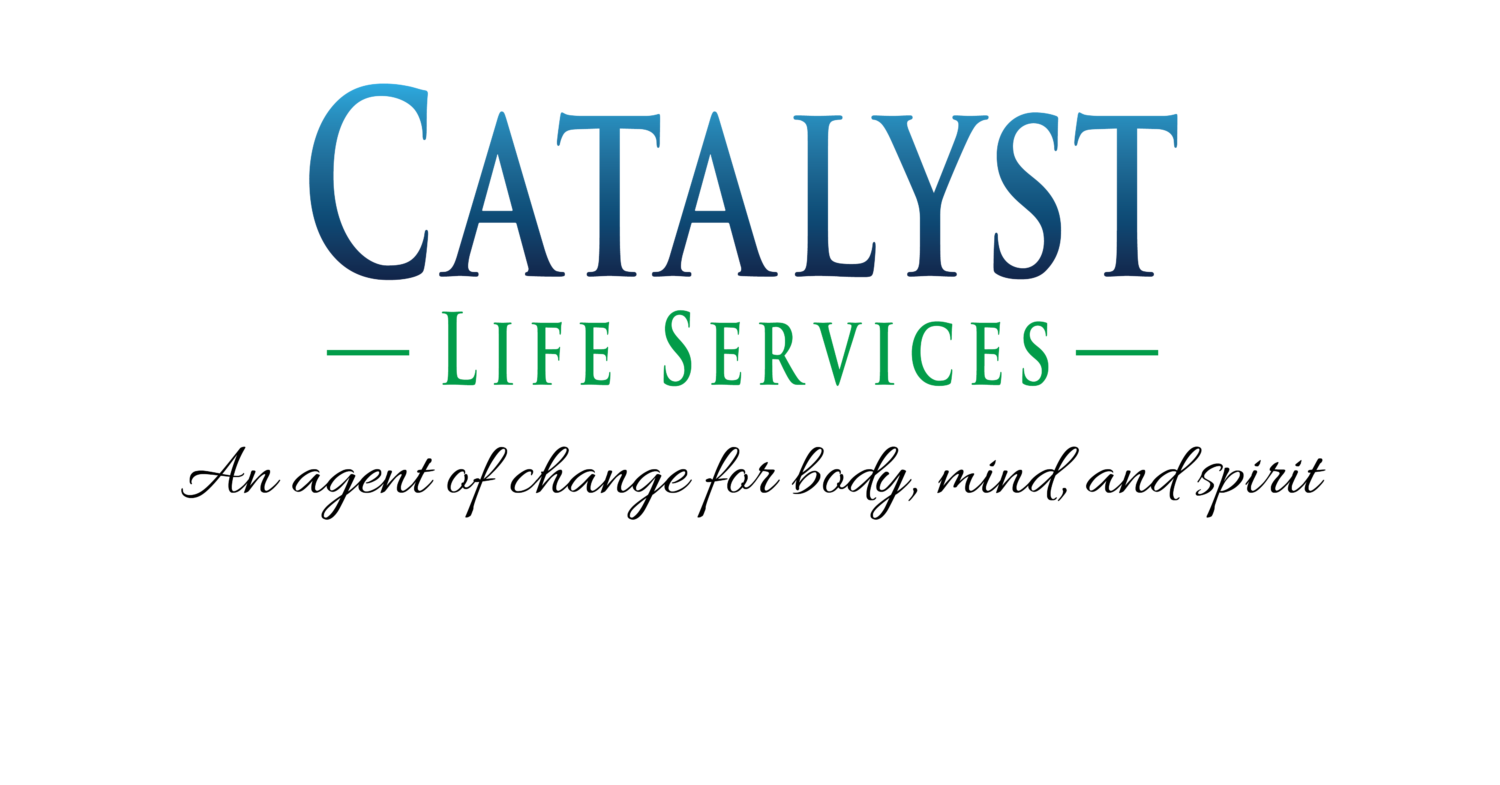
Did you know?
Complications linked to untreated mental illness include social isolation, legal and financial problems, poverty and homelessness and medical conditions. Mental health concerns do not have to go untreated, Catalyst is here to help @ 419-522-HELP!
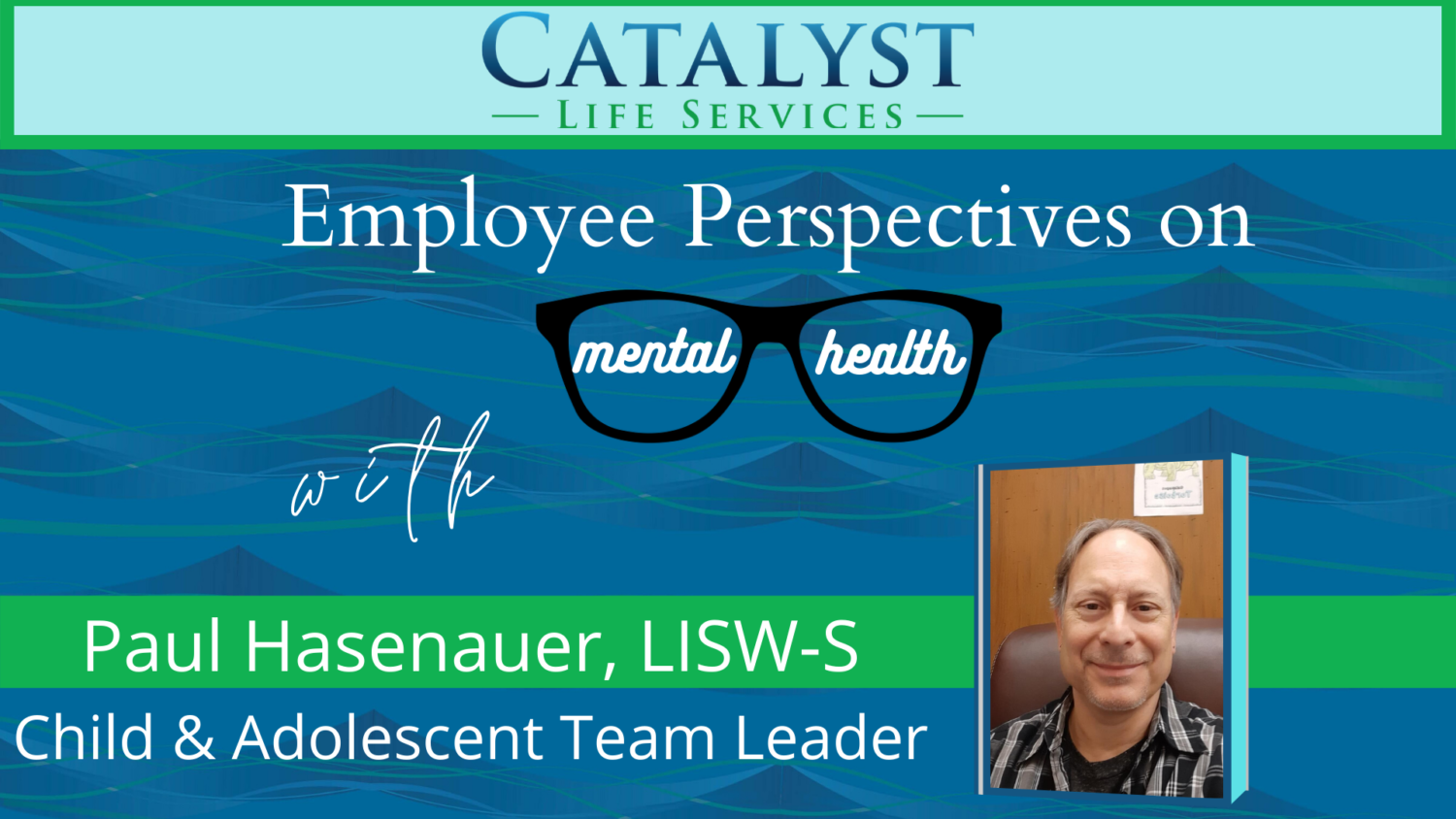
Q&A with Paul
Q 1: What is your role at Catalyst and how long have you been in the role?
Paul: “I have been in my current role of Child and Adolescent team leader since November/December of 2019. I have learned a lot in a short time, but I also realize that I have so much more to learn, so I want to keep striving.I have been at the agency since September of 1999.”
Q 2: Why do you have a passion for mental health and more specifically, children’s mental health?
Paul: “I feel passionately about the field of mental health, in particular the children’s dept., because I think so often that the diagnosis or the condition that people struggle with, is perceived as “them”. I think the strengths and the remarkably unique things that each client has is so important and should not get overlooked! So I am glad that I can be an advocate and encourager and try to walk side by side with them in treatment. I feel privileged to be able to help lead this team and to assist clients in meeting their goals.”
Q 3: What do you enjoy most about your job at Catalyst?
Paul: “I enjoy working with and helping to guide the team. I enjoy hearing about and seeing the successes the staff have with their clients. I enjoy the energy this team brings and their ideas, passion, and commitment to clients. I also enjoy how each day is different and brings it’s challenges. Not a day goes by that I don’t have a laugh with someone, this team has a great sense of humor!”
Q 4: Many times there can be a hesitancy and stigma to seeking professional help for your child’s mental health. Can you speak to that?
Paul: “I realize there is a perceived stigma to one seeking mental health treatment. However, I have witnessed a positive shift in this in the past couple of years. Celebrities such as Kevin Love from the Cavaliers have been open about their own struggles with mental health and have advocated people seeking treatment. I think this is awesome, I certainly try to encourage that getting help is okay, that people need to take care of their whole self. I would like to think that Catalyst and other agencies can be a safe place.”
Q 5: What are some of your hobbies and/or something interesting about yourself that you would like to share?
Paul: “I am married and love spending time with my 13 year old son and 14 year old daughter. I love music, play guitar, like movies, and theatre (which I used to do in the area). I also love fishing and am a huge Browns fan, (which means I guess I’m a glass half full guy! )”
Q 6: Please feel free to share anything else pertaining to children’s and parent’s mental health you would want readers to know.
Paul: “I truly feel fortunate that I am a part of an organization so passionate and committed to the people and families of this community.I am glad that we can be looked at as a place that people can trust to help them, and to feel safe doing it, because I think we are needed now more than ever.”
Supplies Needed!
Below you can see a list of all supplies that are currently needed. You can drop off supplies at The Center or Rehab Center Locations. If you have any questions contact Melissa Drozda at 419-774-6710 or email at drozda@catalystlifeservices.org.
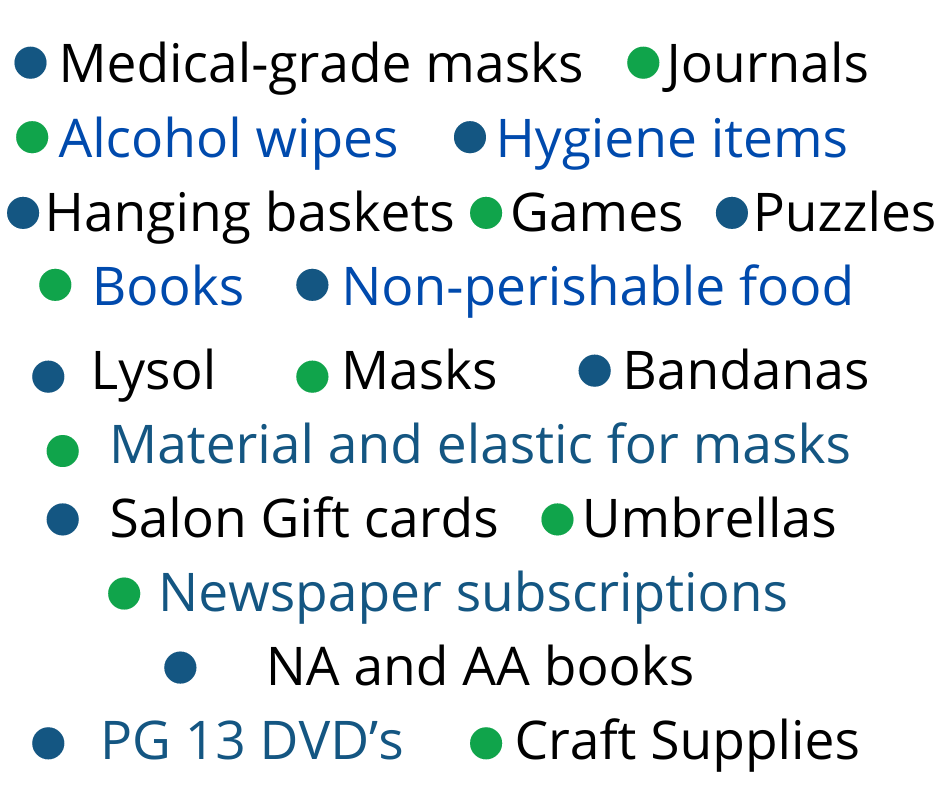
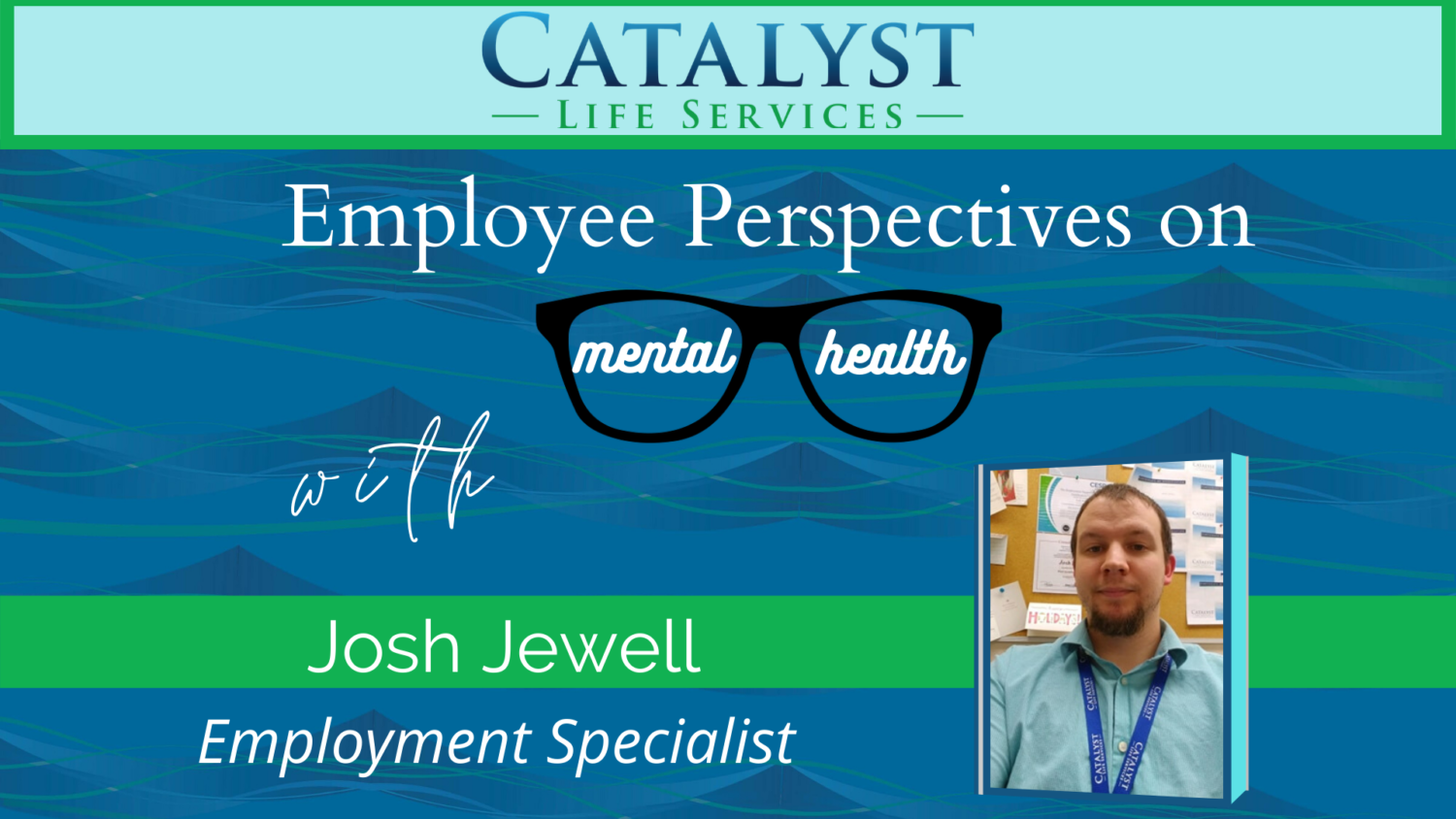
Q&A with Josh
Q 1: What is your role at Catalyst and how long have you been in the role?
Josh: “I am an employment specialist and I help people get jobs and connect them with resources to get them things they need in order to be successful in a job. I have been doing that for over 6 ½ years and will keep doing it for many more.”
Q 2:Why do you have a passion for vocational services? Could you share how that may extend to mental health?
Josh: “This one may make more sense if asked backwards. My interests started in psychology because I wanted to know how people think and why people are the way they are because there are so many personalities and so many interesting and different qualities about each of us so I wanted to learn more about that.
As an intern counselor I noticed that most people in counseling had the same 2 issues- too much free time to think about their problems and not enough money to do anything to change that. This lead me to check out the vocational department and it was an instant fit and they basically offered me a job that they did not even have as a job coach on an as-needed basis.
That got my foot in the door and I fell in love with being able to help people in a concrete way. Of all the employment specialists here, I have been here the longest.
Q 3: What do you enjoy most about your job at Catalyst?
Josh: “That would have to be sharing the joy somebody feels when they get a job! It is such a wonderful feeling knowing their life is improving and I was able to be a part of that. Admittedly, I also have a great time when I get to take people shopping for work clothes because it is fun and they are usually so grateful and joyful to get nice things. Many of them tell me it is the first time they have been able to get new clothes in years! It is so nice to be able to help them in a more fun way instead of in a clinical way which we typically think of when it comes to mental health services.”
Q 4: Many times there can be a hesitancy and stigma to seeking professional help for mental health. Can you speak to that?
Josh: “This is definitely something we see from both sides. Clients can feel awkward about getting help and employers can stigmatize people receiving help and unfortunately that is always going to happen. We continue to try to educate people and build relations in the community to alleviate this as much as possible and I would say we find just as many people interested in helping us and our clients as we find those who are turned off by it so there is hope out there!”
Q 5: Could you share how vocational services can help someone with a mental health diagnosis?
Josh: “Getting to work can be a big part of treatment for some people because doing work you enjoy becomes a big part of who you are. It gives a sense of pride, a sense of accomplishment, the ability to be independent, and much more. It also keeps people busy and out of trouble, gives them a chance to socialize and make friends, and make money to take care of themselves and have fun. All of these things play an important role in our daily life and affect our overall well-being.”
Q 6: What are some of your hobbies and/or something interesting about yourself that you would like to share?
Josh: “Well outside of working full time, the main thing I do is continue working lol. I have a part-time job as well and that is another passion of mine. I work and play in car audio. I always have a great sounding system in my cars and I have over $50k in audio equipment because I can not live without my music!”
Q 7: Please feel free to share anything else pertaining to mental health and vocational services you would want readers to know.
Josh: “It is important to take care of yourself because even if you do not have a mental health diagnosis and go to counseling, we all have our own struggles and if we do not manage them properly we could easily be the ones needing help so be happy, have fun, and eat ice cream if you want.”
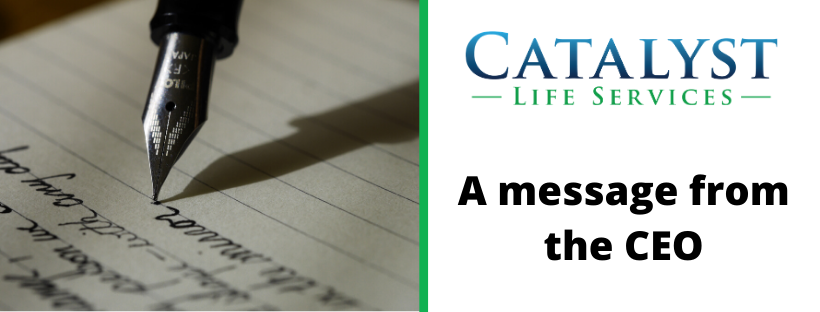
“As we continue to work our way through this uncertain time filled with constant change, we find ourselves in new positions. Many have had to adapt to either working remotely or have lost their employment entirely .Those that continue to work onsite may have children at home with the closing of schools. Children are feeling isolated as activities are cancelled and they are away from their friends, and we know many are facing anxiety and fear about the pandemic itself. We have counselors available for youth and adults to assist with the multitude of emotions and fears many are experiencing. These services can be provided over the phone.
We want to thank the Richland County Foundation and other community supporters for their donations to help with telehealth tools, PPE and infectious control items during this difficult time. As a community behavioral health organization, we could not do it without this ongoing support!”
With gratitude,
Laura Montgomery, CEO
